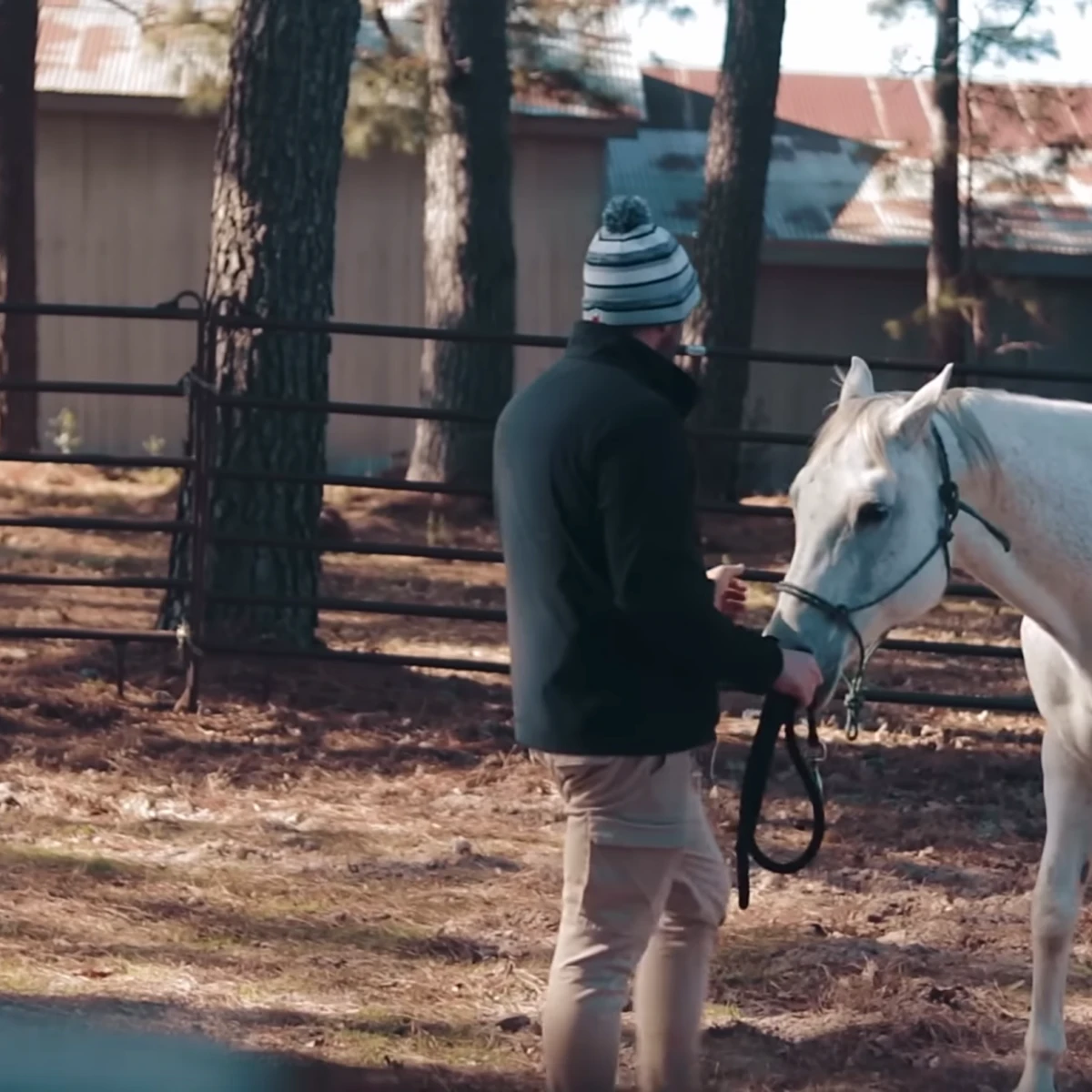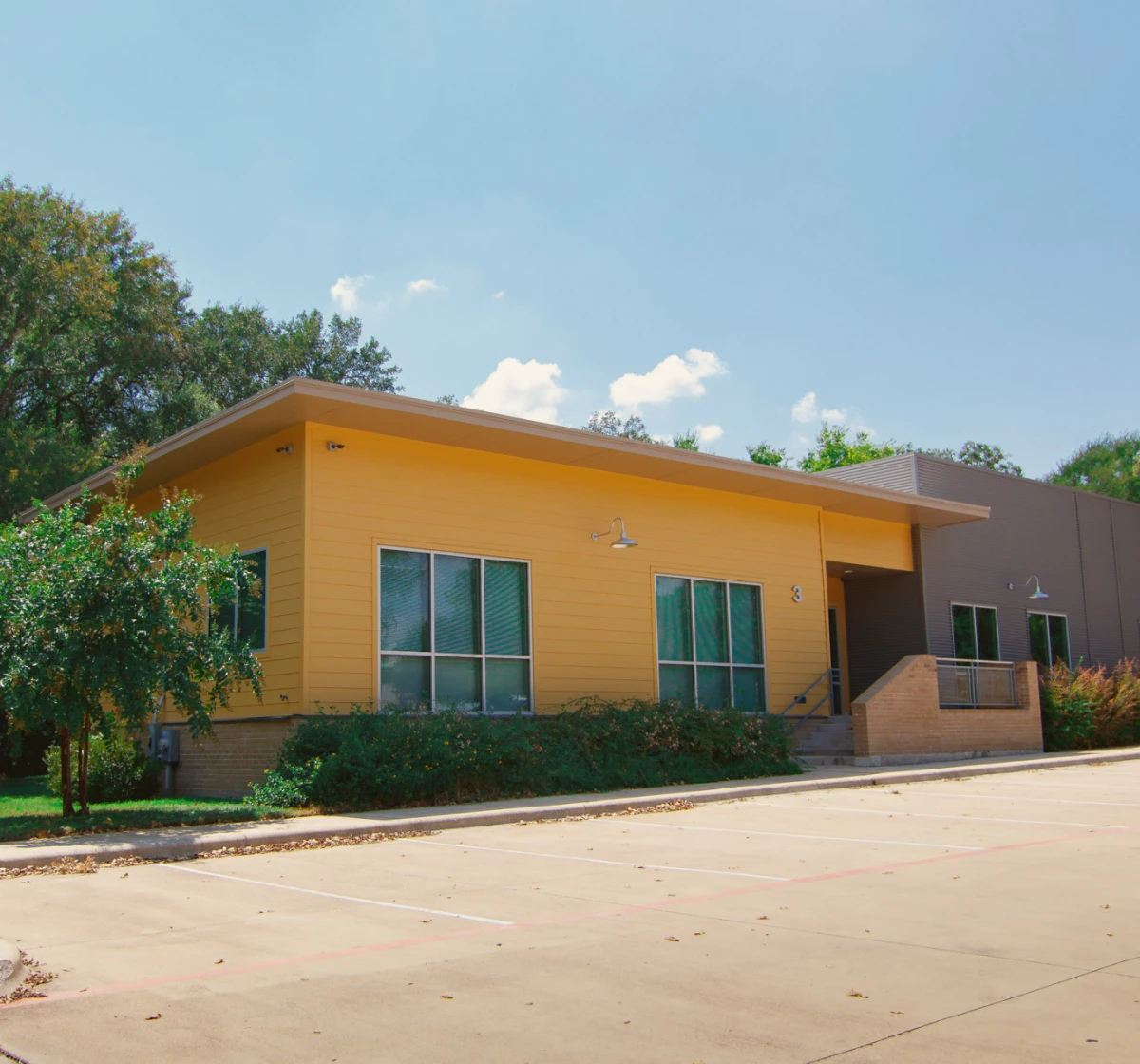We work with insurances. Verify yours now
Change Your Outlook with The Last Resort’s Evidence-Based Care for Men and Their Families
Start healing from drug and alcohol abuse and co-occurring mental health issues with cognitive-behavioral therapy (CBT) for addiction at The Last Resort in Austin. Our evidence-based care, designed for men and their families, provides a transformative approach to recovery.
Discover how we can help change your outlook and guide you toward a stronger, more fulfilling future through personalized, compassionate treatment.


CBT, or cognitive behavioral therapy for addiction, is a structured therapeutic approach that focuses on identifying and changing the patterns of thinking and behavior that contribute to substance use disorders.[1] It helps people recognize and modify negative thought patterns and behaviors associated with addiction, such as triggers and cravings.
CBT teaches coping strategies and skills to manage stress, cravings, and situations that may lead to relapse.[2] It is an evidence-based modality and is widely used in addiction treatment because of its effectiveness in helping achieve and maintain sobriety.
CBT for substance abuse is a widely studied modality of addiction treatment.[3] Research consistently demonstrates its effectiveness in helping individuals break the cycle of addiction by addressing the underlying thoughts and behaviors that contribute to substance use. Studies have shown that CBT can significantly reduce the risk of relapse, making it a popular and effective intervention in evidence-based addiction treatment programs.[4]


By teaching individuals practical coping skills, such as identifying and managing triggers, challenging irrational beliefs, and developing strategies to prevent relapse, CBT helps you regain control and better understand your thought patterns (and, therefore, your actions). Its structured approach and adaptability to various types of substance use disorders make it a valuable tool for those starting the road to recovery.
CBT for addiction operates on the principle that our thoughts, feelings, and behaviors are interconnected, influencing how we perceive and react to the world around us.[5] This therapeutic approach is particularly effective because it targets the underlying cognitive processes and behavioral patterns that contribute to addictive behaviors.
At its core, CBT helps people understand the cycle of addiction by identifying specific triggers, cravings, and thought patterns that perpetuate substance use.[6] By shining a light on these behaviors, therapists and clients work together to set clear, achievable goals aimed at reducing substance use and developing healthier coping mechanisms.
CBT emphasizes skill-building as a crucial aspect of recovery. It equips you with practical tools to manage triggers, such as stress management techniques, problem-solving strategies, and assertiveness training. From there, cognitive restructuring (which involves challenging and changing irrational or harmful beliefs related to substance use) helps you develop a more balanced perspective and adopt healthier ways of thinking about yourself and your addiction.[7]
Ultimately, CBT for drug abuse is effective because it offers a holistic approach to treatment. It addresses the psychological and behavioral components of addiction in tandem, providing individuals with a comprehensive toolkit for recovery.
Empowering people to challenge and change their thought patterns, develop effective coping strategies, and build supportive networks helps set the stage for long-term sobriety, making CBT for addiction a powerful therapy.

Cognitive behavioral therapy for addiction has established itself as a cornerstone in the treatment of substance use disorders, demonstrating strong efficacy both independently or in combination with other interventions.[8] Extensive evidence from large-scale trials and systematic reviews consistently underscores the effectiveness of CBT in addressing both alcohol and drug use disorders.
In clinical practice, CBT has been established as an empirically supported treatment for SUDs. Additionally, contextual factors, such as its adaptability across diverse populations and settings, further contribute to its widespread adoption and success across treatment environments.[9]
Recent advancements have extended the reach and accessibility of CBT through computerized platforms as well, offering a virtual, stand-alone intervention that retains efficacy in clinical environments. Studies evaluating computerized CBT have shown it to be safe, effective, and comparable with conventional treatment approaches.[10] Importantly, participants have reported high satisfaction with this mode of delivery, highlighting its acceptability and feasibility in modern healthcare settings.

Our approach to CBT for substance use disorders is designed to provide you with a structured, evidence-based framework that cultivates a meaningful and lasting recovery
Upon entering treatment, you will undergo a comprehensive assessment to identify your unique needs and challenges related to addiction. Our team of experienced therapists will collaborate with you to develop a personalized treatment plan that integrates CBT as a central component. This plan is tailored to address your specific substance use patterns, triggers, and underlying cognitive and emotional factors contributing to addiction.
CBT at The Last Resort employs evidence-based techniques that have been validated through rigorous research and clinical practice. You will work with your therapist to identify and challenge negative thought patterns and beliefs associated with substance use. By recognizing and modifying these cognitive distortions, you will develop healthier coping mechanisms and strategies to manage cravings and triggers effectively.
Throughout your CBT sessions, you will acquire practical skills and tools designed to empower you in your recovery journey. These may include:
We believe in treating the whole person, not just the addiction. Our CBT program integrates holistic approaches to wellness, including mindfulness techniques and stress reduction practices. These complementary therapies enhance the effectiveness of CBT by promoting emotional regulation, self-awareness, and overall well-being.
CBT sessions at The Last Resort are conducted in a supportive, compassionate environment where your safety and comfort are prioritized. Our therapists are committed to fostering a trusting therapeutic alliance that encourages open communication and honest exploration of recovery challenges and successes.
Your CBT progress will be monitored and evaluated to ensure that your treatment remains aligned with your evolving needs and goals. Therapeutic interventions may be adjusted based on your feedback and ongoing assessment results, ensuring a personalized and responsive approach to your recovery journey.
Experience transformative recovery with CBT for addiction and other holistic treatment at The Last Resort. Our personalized approach integrates several evidence-based techniques to empower you in overcoming addiction alongside whole-person care that attends to each facet of substance abuse.
Discover practical skills, holistic support, and compassionate guidance tailored to your journey towards lasting sobriety. Take the first step towards a brighter future today.
CBT helps prevent relapse by teaching you to identify and manage triggers that lead to substance use. You’ll learn to recognize early signs of relapse and intervene effectively through cognitive restructuring and behavioral techniques, such as developing coping skills and assertiveness training. By addressing underlying thoughts and behaviors that contribute to addiction, CBT techniques for substance abuse equip people with tools to maintain sobriety and navigate challenges post-treatment.
Yes, CBT is considered suitable for all stages of addiction. Whether someone is newly acknowledging their addiction, in early recovery, or dealing with chronic relapse, CBT can be adapted to meet their specific needs. Therapists customize the approach based on the individual’s readiness for change, the severity of addiction, and personal circumstances, making it a flexible and effective treatment option across different stages of the addiction recovery journey.
Mindfulness techniques are often integrated into CBT for substance misuse (and CBT in group therapy settings) to enhance self-awareness and emotional regulation. By practicing mindfulness, individuals learn to observe their thoughts, feelings, and physical sensations without judgment. This awareness helps in recognizing triggers and cravings early on, allowing individuals to choose healthier responses rather than resorting to substance use. Mindfulness also promotes overall well-being and reduces stress, both of which are beneficial in maintaining long-term sobriety.
Family members can play a supportive role in CBT for drug addiction by participating in therapy sessions or family therapy sessions specifically designed to address their loved one’s addiction. Involvement may include learning about addiction and recovery, improving communication within the family, setting boundaries, and providing ongoing support. Therapists may also educate family members on ways to avoid enabling behaviors and encourage positive changes in the family dynamic to effectively support the individual’s recovery process.
Potential challenges of CBT for addiction may include facing difficult emotions and memories related to past substance use, as therapy involves exploring these triggers to develop coping strategies. Some people may initially find it challenging to change ingrained thinking and behavior patterns. However, these challenges are addressed collaboratively with the therapist, who provides guidance and support throughout the treatment process. Overall, the benefits of CBT in achieving sustainable recovery often outweigh these initial difficulties.
[1] Mayo Clinic. (2019). Cognitive Behavioral Therapy. Mayoclinic.org; Mayo Clinic. https://www.mayoclinic.org/tests-procedures/cognitive-behavioral-therapy/about/pac-20384610 on July 1, 2024
[2] Sudhir, P. M. (2018). Cognitive behavioral interventions in addictive disorders. Indian Journal of Psychiatry, 60(Suppl 4), S479–S484. https://www.ncbi.nlm.nih.gov/pmc/articles/PMC5844158/ on July 1, 2024
[3] Magill, M., Kiluk, B. D., & Ray, L. A. (2023). Efficacy of cognitive behavioral therapy for alcohol and other drug use disorders: Is a one-size-fits-all approach appropriate? Substance Abuse and Rehabilitation, Volume 14(1), 1–11. https://www.ncbi.nlm.nih.gov/pmc/articles/PMC9948631/ on July 1, 2024
[4] Sudhir, P. M. (2018). Cognitive behavioral interventions in addictive disorders. Indian Journal of Psychiatry, 60(Suppl 4), S479–S484. https://www.ncbi.nlm.nih.gov/pmc/articles/PMC5844158/ on July 1, 2024
[5] Nakao, M., Shirotsuki, K., & Sugaya, N. (2021). Cognitive–behavioral Therapy for Management of Mental Health and stress-related disorders: Recent Advances in Techniques and Technologies. BioPsychoSocial Medicine, 15(1), 1–4. https://www.ncbi.nlm.nih.gov/pmc/articles/PMC8489050/ on July 1, 2024
[6] Center for Substance Abuse Treatment. (2019). Chapter 4—Brief Cognitive-Behavioral Therapy. Nih.gov; Substance Abuse and Mental Health Services Administration (US). https://www.ncbi.nlm.nih.gov/books/NBK64948/ on July 1, 2024
[7] Villines, Z. (2022, June 20). Cognitive restructuring: Steps, technique, and examples. Medical News Today. https://www.medicalnewstoday.com/articles/cognitive-restructuring on July 1, 2024
[8] McHugh, R. K., Hearon, B. A., & Otto, M. W. (2010). Cognitive Behavioral Therapy for Substance Use Disorders. Psychiatric Clinics of North America, 33(3), 511–525. https://www.ncbi.nlm.nih.gov/pmc/articles/PMC2897895/ on July 1, 2024
[9] APA PsycNet. (n.d.). Psycnet.apa.org. https://psycnet.apa.org/record/2023-49918-001 on July 1, 2024
[10] Kiluk, B., Nich, C., Buck, M. B., Devore, K. A., Frankforter, T. L., LaPaglia, D. M., Muvvala, S. B., & Carroll, K. M. (2018). Randomized Clinical Trial of Computerized and Clinician-Delivered CBT in Comparison With Standard Outpatient Treatment for Substance Use Disorders: Primary Within-Treatment and Follow-Up Outcomes. American Journal of Psychiatry, 175(9), 853–863. https://ajp.psychiatryonline.org/doi/10.1176/appi.ajp.2018.17090978 on July 1, 2024